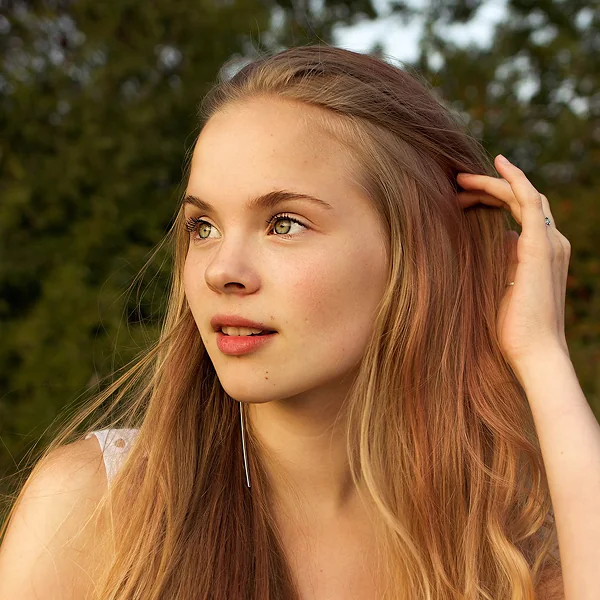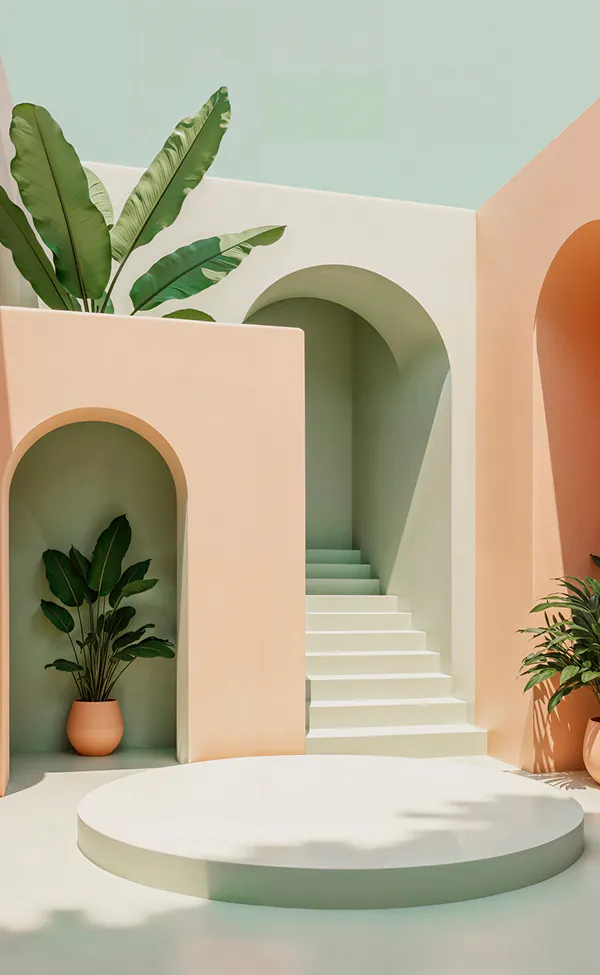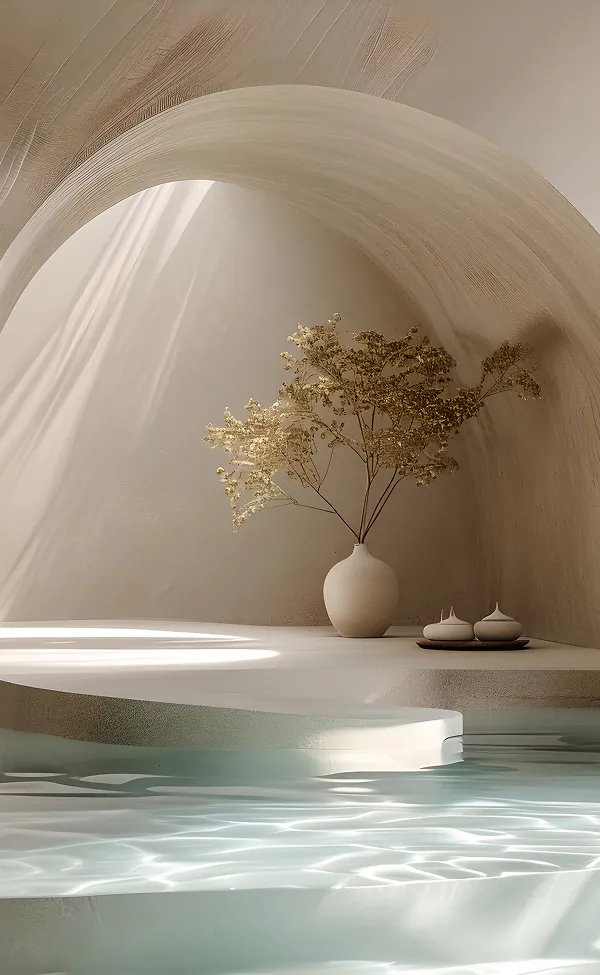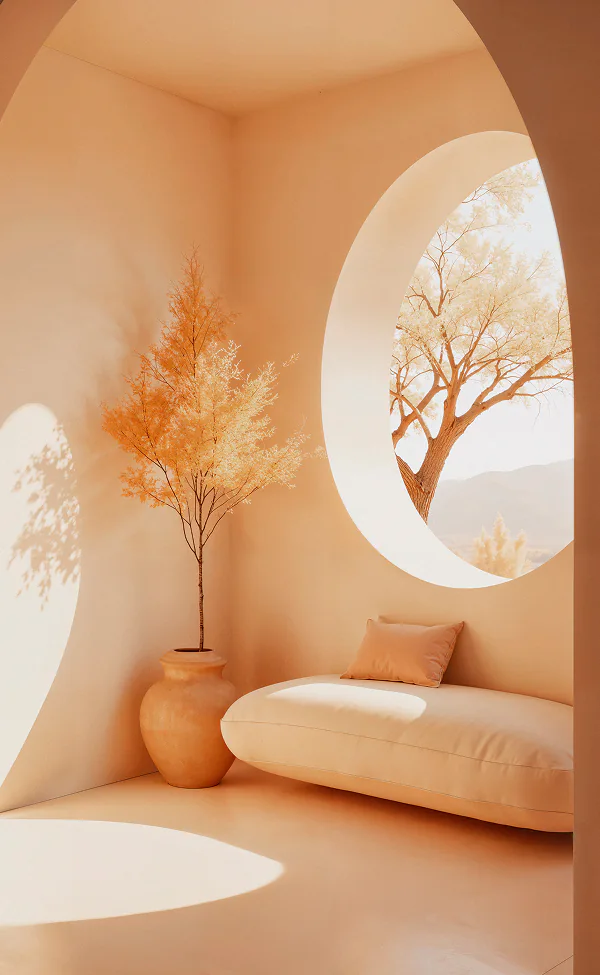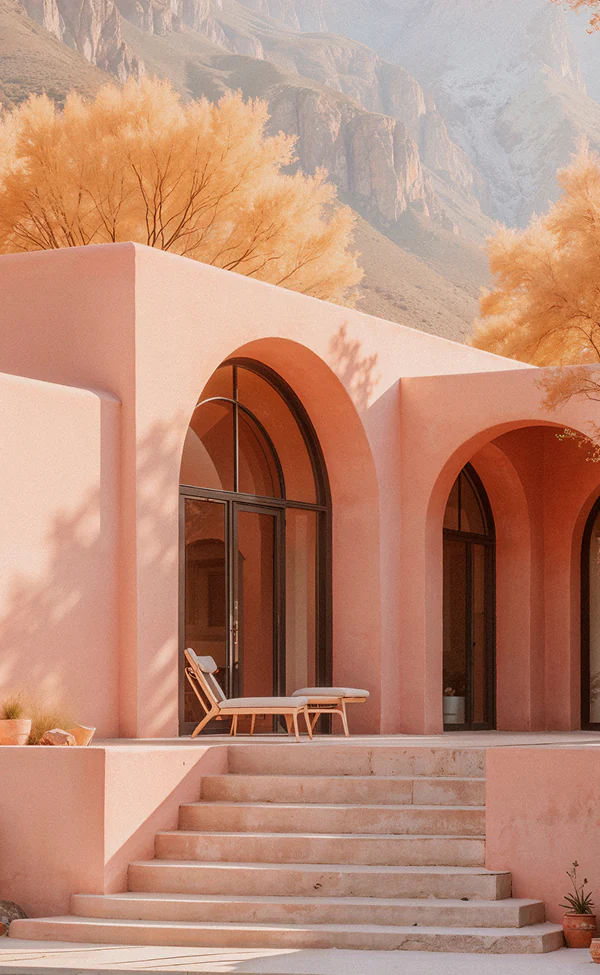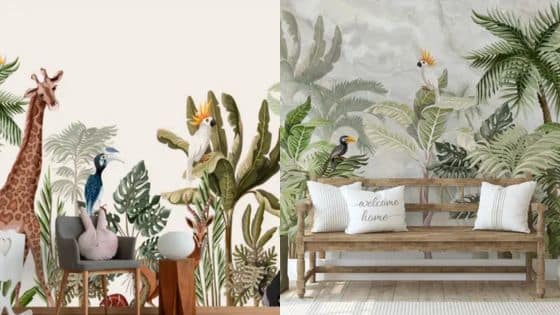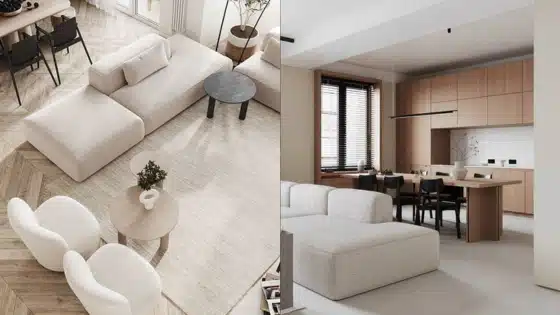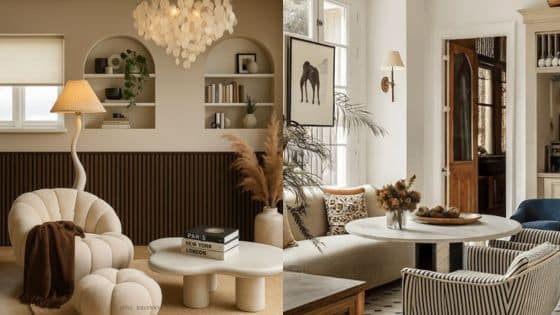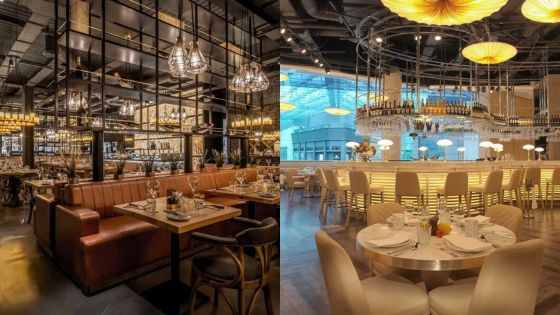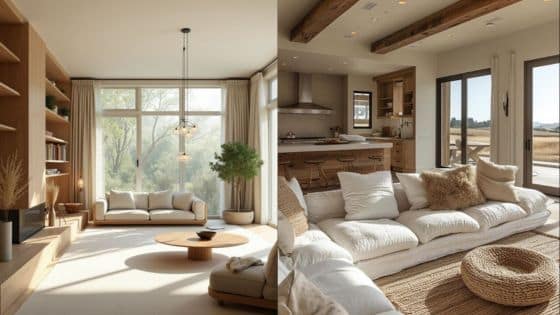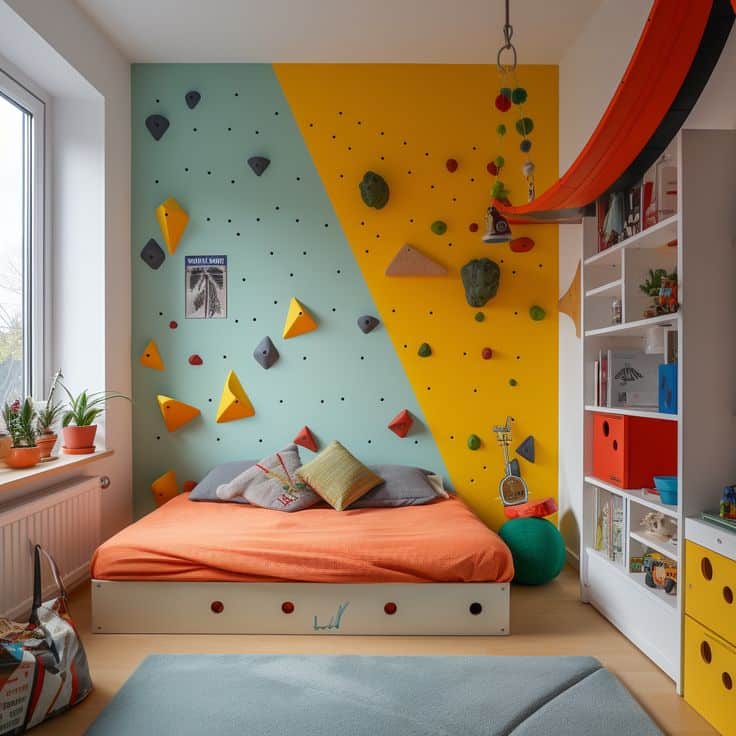
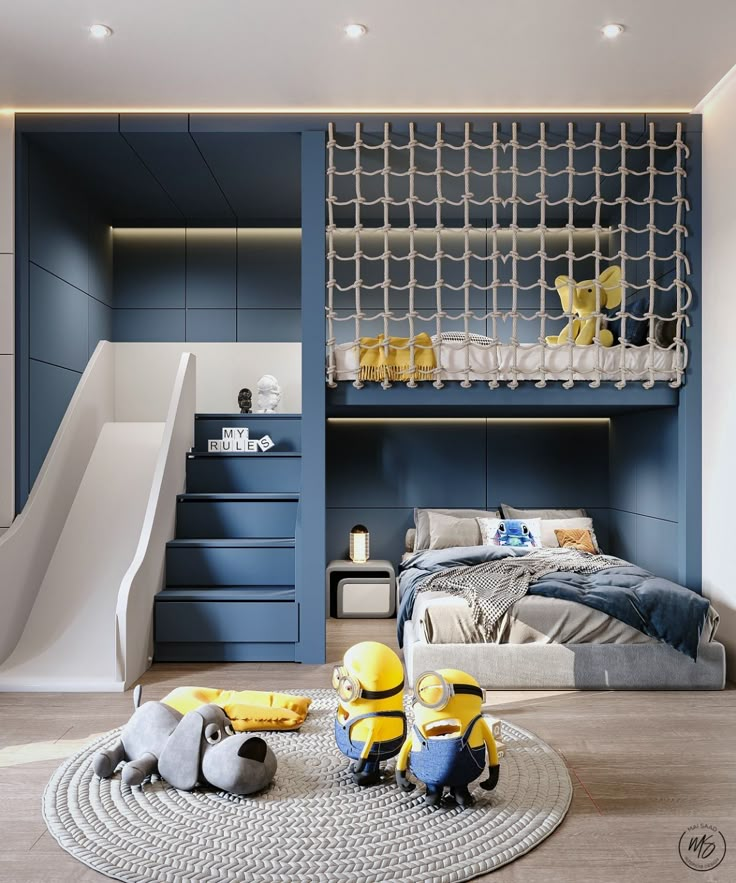
Creating a boy’s adventure explorer kids room means designing a space that sparks imagination and encourages play. It should feel like a fun, exciting place where a child can explore new ideas and stories. The room combines practical furniture with creative decorations to build a sense of adventure every day.
The key to a great explorer room is blending themed decor with functional elements that make the space safe and easy to use. Walls, floors, and accessories all work together to create an adventurous environment, while areas for play and learning keep the room engaging. Thoughtful lighting and personalized touches complete the look, making it a unique space for any young explorer.
Key Takeways
- Adventure rooms mix fun themes with practical design.
- Furniture and decor should support play and safety.
- Personal touches and lighting enhance the adventurous feel.
Core Elements of a Boy’s Adventure Explorer Kids Room
A boy’s adventure explorer room combines colors, furniture, and layout that spark curiosity and active play. The design should balance fun with practicality, creating a space that feels like an exciting place to explore while staying organized and easy to use.
Adventure-Inspired Color Schemes
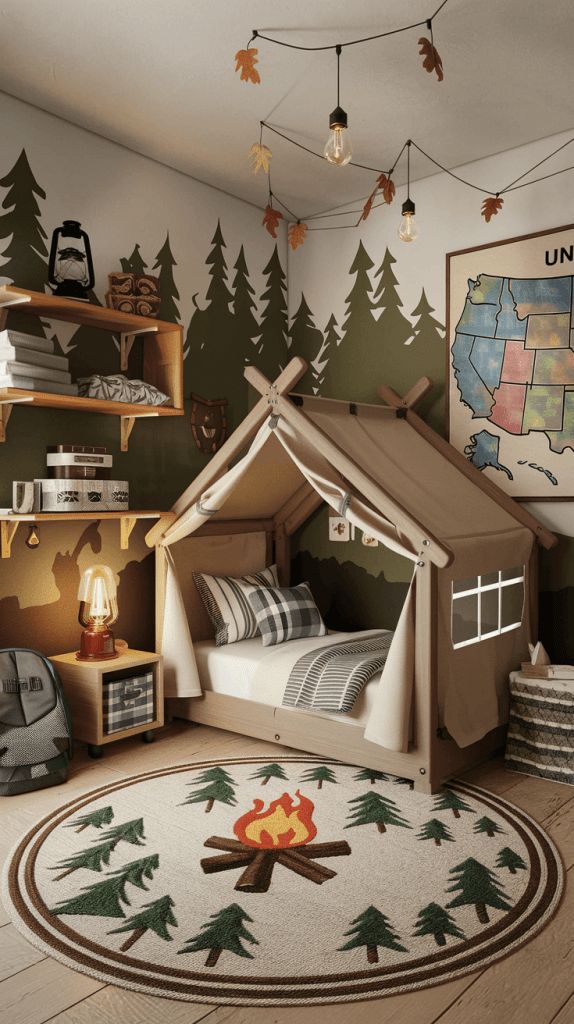
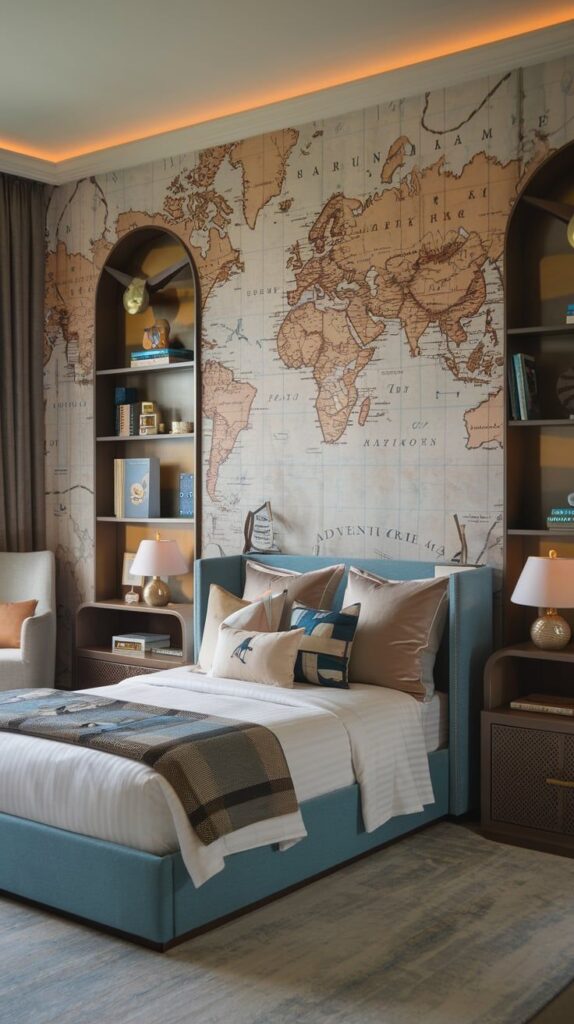
Colors set the tone for an adventure explorer room. Earthy tones like forest green, sandy beige, and sky blue are common. These colors reflect nature and outdoor environments, helping create a calming yet stimulating space.
Using an accent wall with a bold color like burnt orange or deep navy blue can add energy. Combining muted base colors with bright accents keeps the room balanced. Patterns like camouflage, maps, or animal prints also work well.
Paint finishes should be durable and easy to clean. Matte or eggshell finishes help hide smudges. Incorporating washable wall decals or removable wallpaper with adventure themes allows for easy updates as tastes change.
Themed Furniture Selections
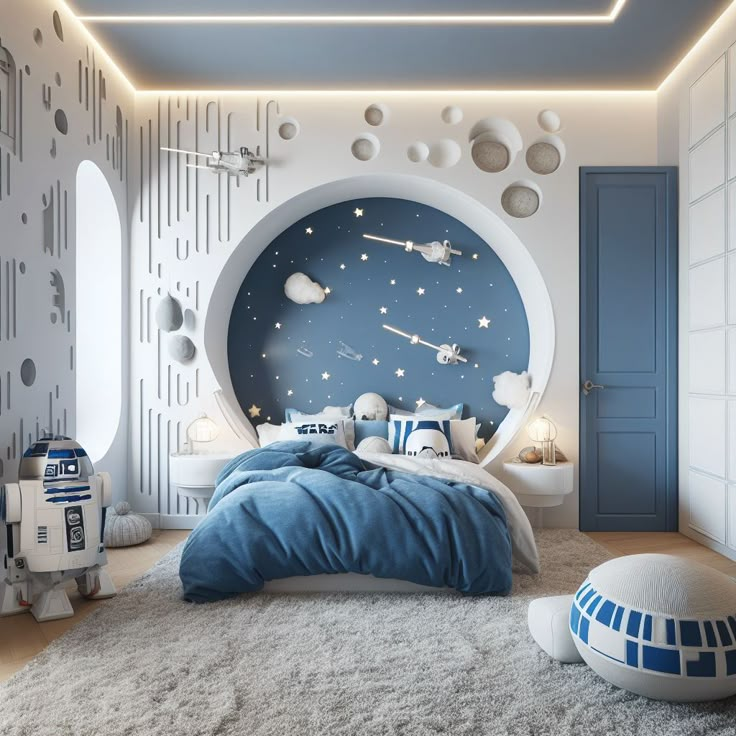
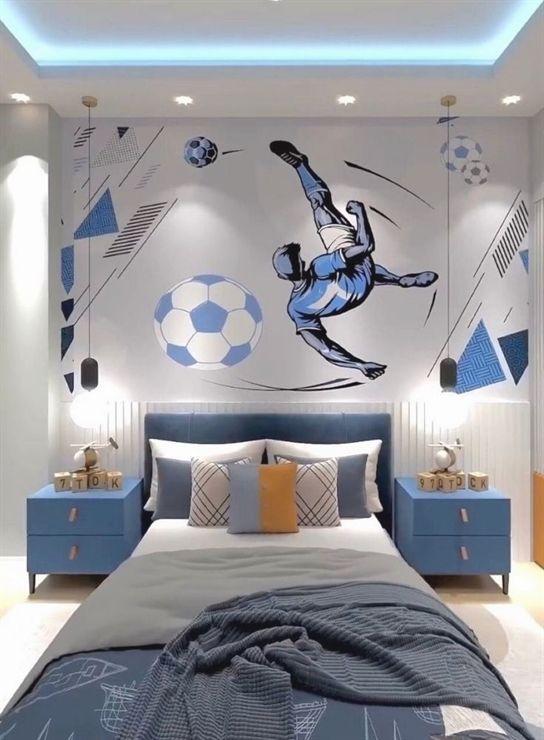
Furniture in this room should fit the adventure theme while being functional. Pieces made from wood or with rugged finishes evoke an outdoors feel. A bed shaped like a tent, ship, or treehouse becomes part of the adventure.
Storage is key. Trunks or crates with wheels can serve as toy boxes and add to the explorer vibe. Desks and chairs should be sturdy and sized for a growing child.
Multipurpose furniture is useful. For example, a bunk bed with a built-in desk or shelves maximizes space. Avoid overly ornate pieces that don’t fit the rough-and-ready style of an explorer’s room.
Essential Room Layout Considerations
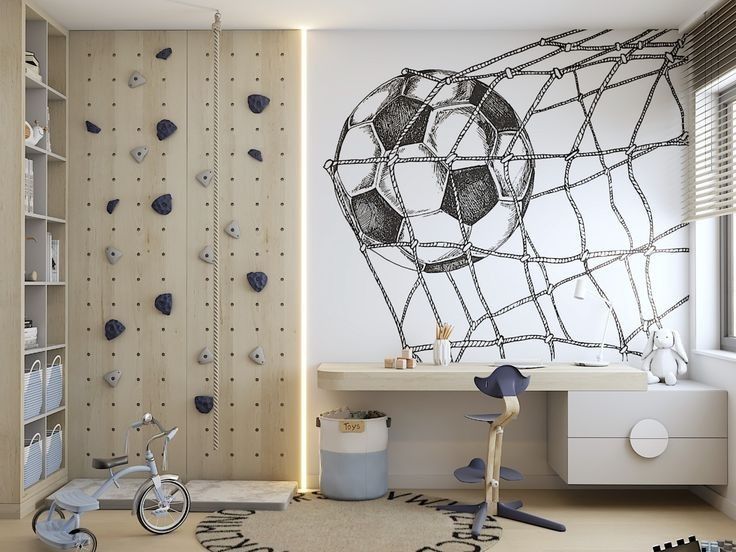
The layout must encourage movement and play. Open floor space is important for spreading out maps, setting up tents, or playing with models. Zones like a reading nook, a crafting area, and a gear station keep activities organized.
Safety matters. Position furniture to avoid sharp corners in play areas. Use non-slip rugs and secure heavy furniture to the wall.
Lighting should be layered. Natural light is ideal, combined with task lighting at study areas and soft, warm lights for relaxing times. Adjustable lighting supports different activities and moods during the day.
Adventure-Themed Wall and Floor Decor
Walls and floors create the base for an explorer-themed room. Using special designs and textures helps build the feeling of adventure. The right choices bring exciting details and comfort to the space.
Mural and Wallpaper Ideas
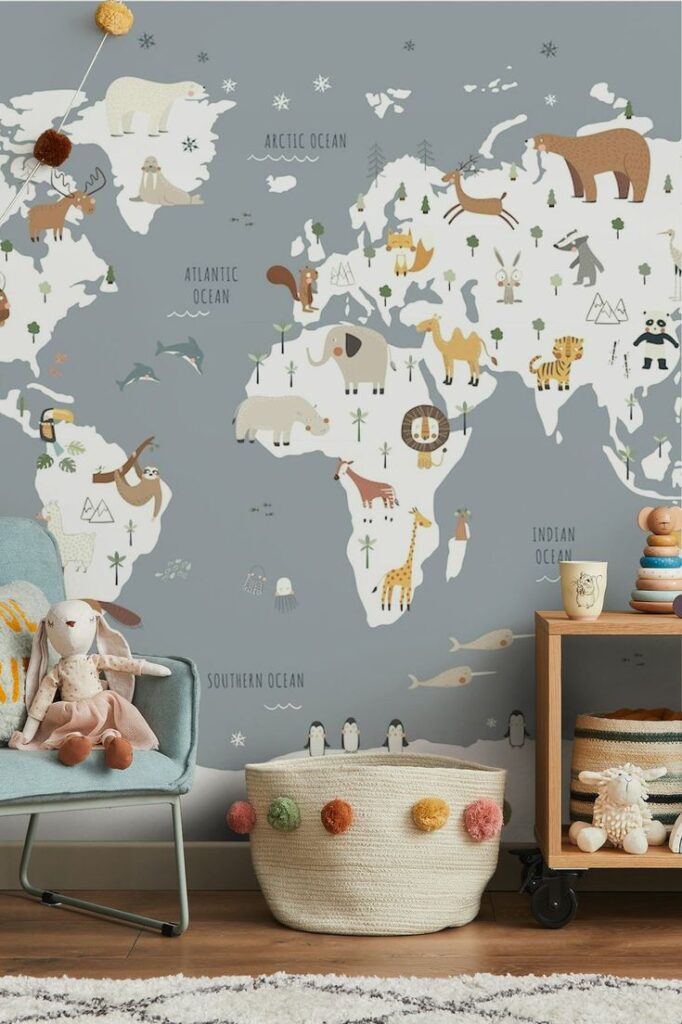
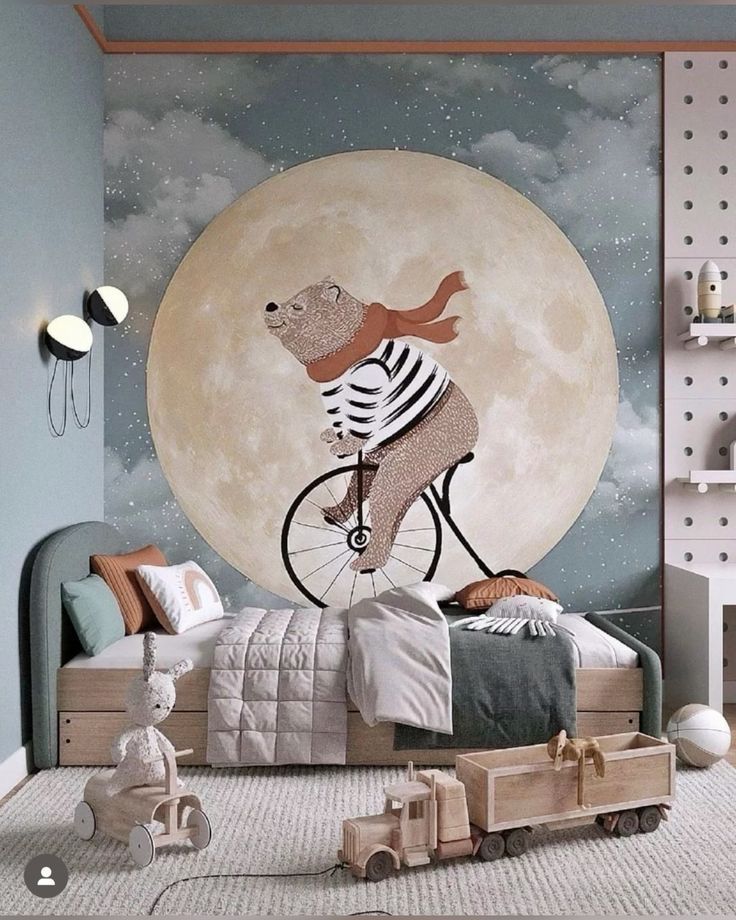
Murals with scenes of mountains, forests, or jungle animals work well for an adventure room. These large images can cover one wall to create a strong focal point. They make the room feel bigger and more immersive.
Wallpaper with patterns like compasses, footprints, or vintage maps adds smaller details to the walls. It works best on accent walls or inside closets for a subtle touch. Look for durable, easy-to-clean wallpaper for a kid’s room.
Colors like earthy greens, browns, and blues give a natural, outdoor vibe. These shades blend well with wood and metal furniture, enhancing the explorer feel.
Creative Wall Art and Maps
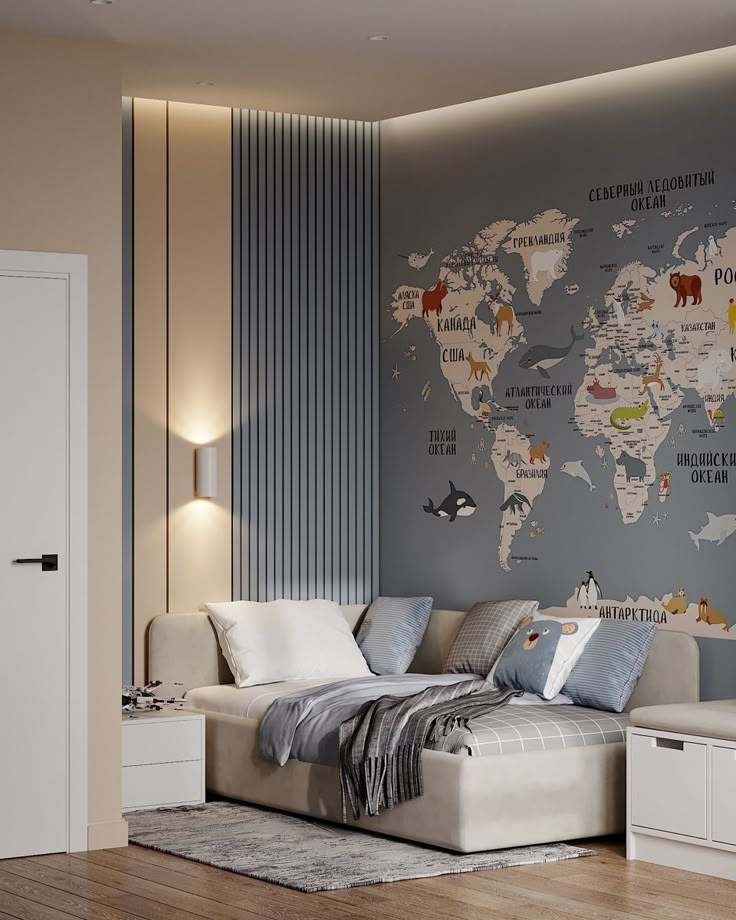
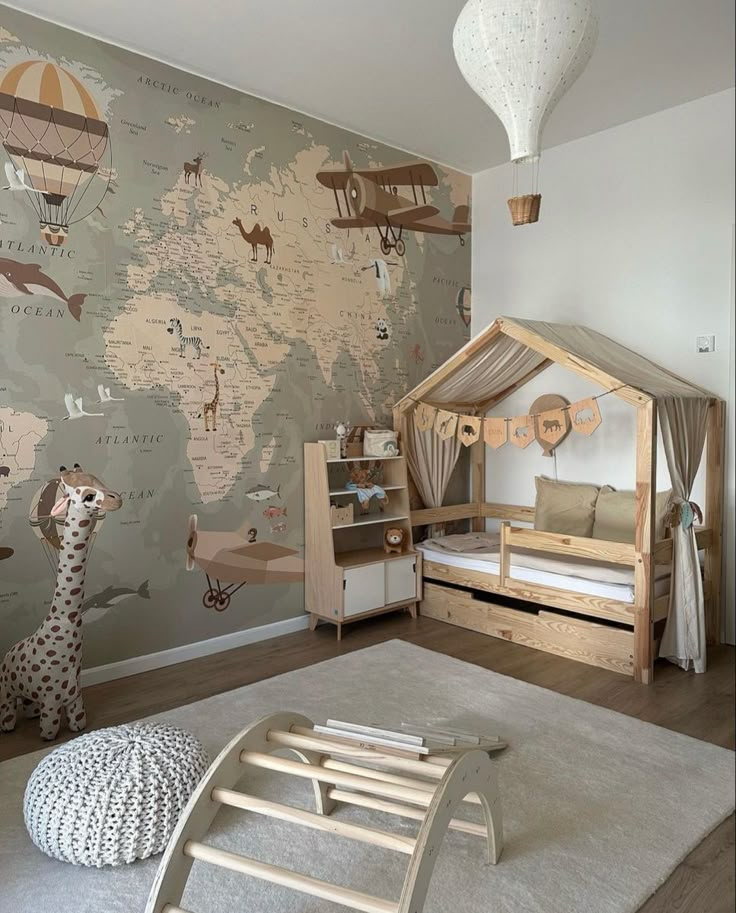
Wall art featuring old-style maps or globes helps teach geography while decorating. Framed prints of explorers, animals, or outdoor gear add character and story to the room.
3D wall elements like wooden arrows or binocular-shaped shelves bring texture and fun shapes to empty walls. Kids can store small toys or books on these shelves, keeping the space organized.
Using chalkboard paint on a small section encourages drawing and planning “adventures.” It’s a practical and creative decor idea that grows with the child.
Rugs and Flooring for Explorer Vibes
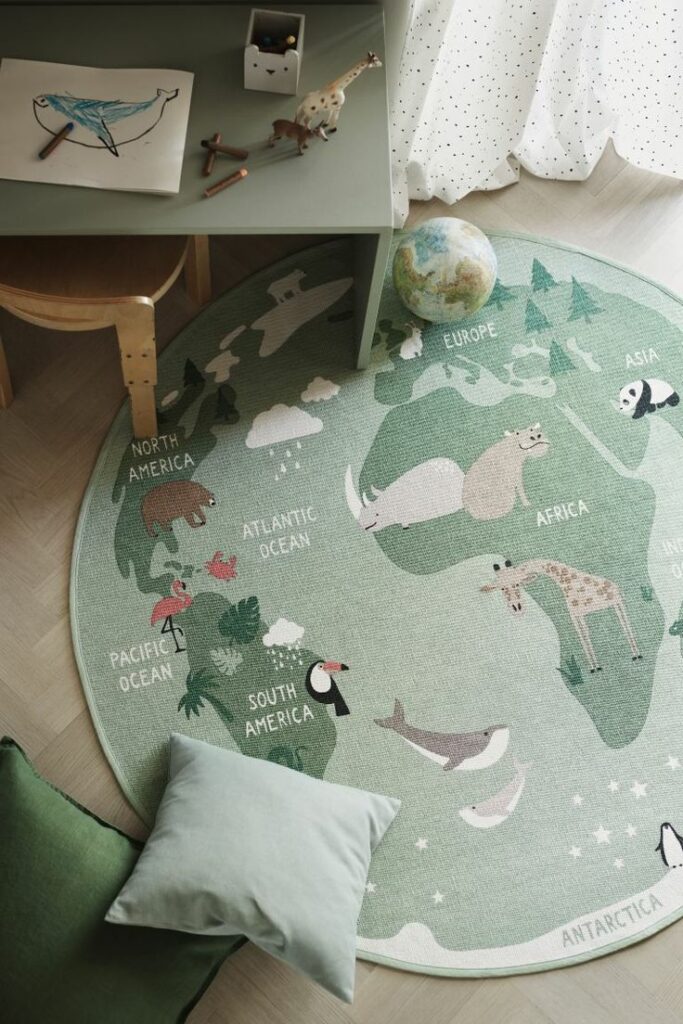
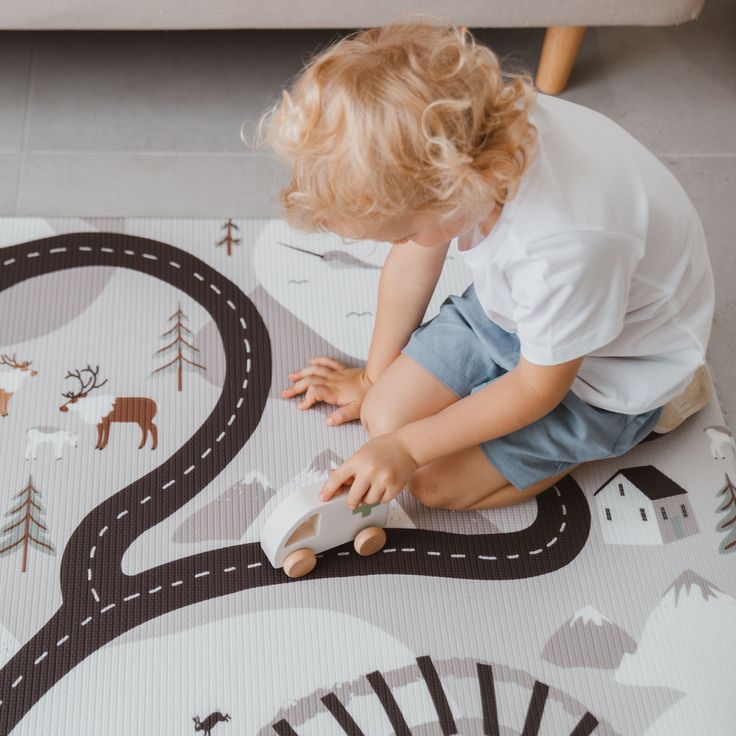
Rugs with natural textures like jute or sisal create a rugged, outdoor feel. Bold patterns like animal prints or trail markers emphasize the explorer theme.
Floor decals shaped like stones, animal tracks, or compass points are easy to apply and remove. They add playful details without changing the whole floor.
Durable hardwood or laminate flooring in warm tones is a practical choice. It can handle wear and tear while fitting into the adventure room style. Adding a soft, colorful rug gives comfort during playtime.
Functional Adventure-Inspired Furniture
Adventure-themed furniture can make a kid’s room exciting and practical. Pieces that look like parts of an adventure or are useful in different ways help keep the room fun and tidy. The right furniture fits the space and encourages creativity.
Beds Shaped Like Vehicles or Cabins
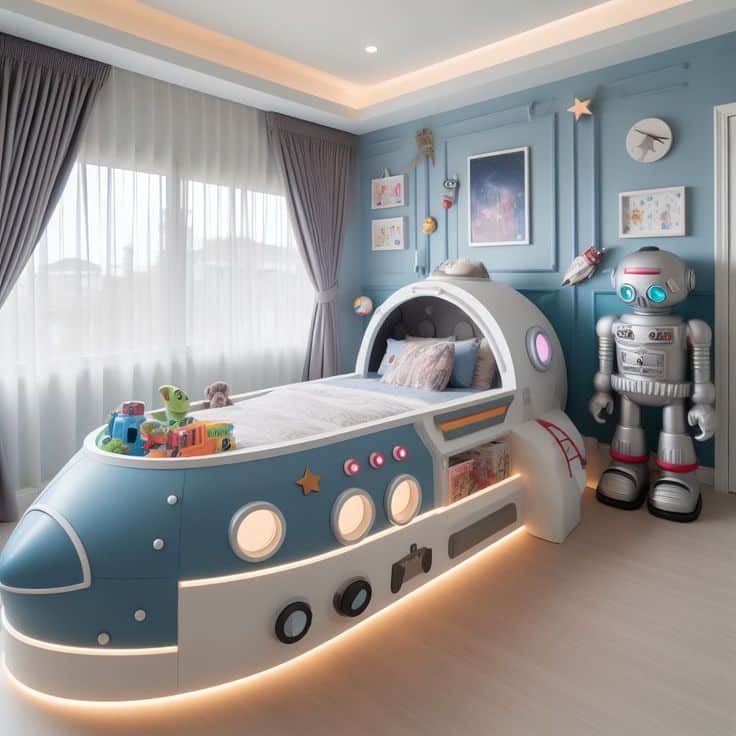
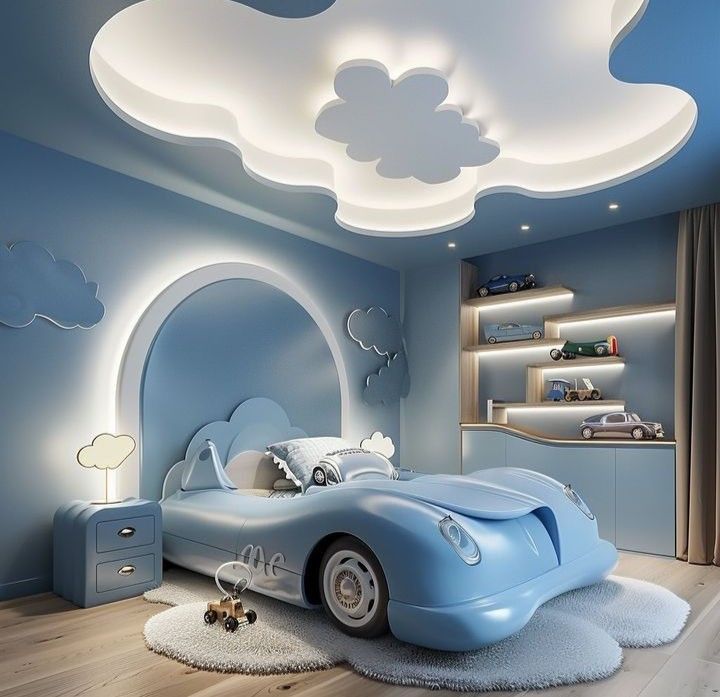
Beds that look like cars, boats, rockets, or cabins add excitement to sleep time. These beds often have built-in features like windows, ladders, or small shelves for books and toys. They create a cozy, themed space that feels like part of the adventure.
Many beds use safe materials and low heights to protect young children. Some designs include storage drawers underneath to hold blankets or clothes. This type of bed combines playfulness with useful functions in one piece.
Multi-Purpose Storage Solutions
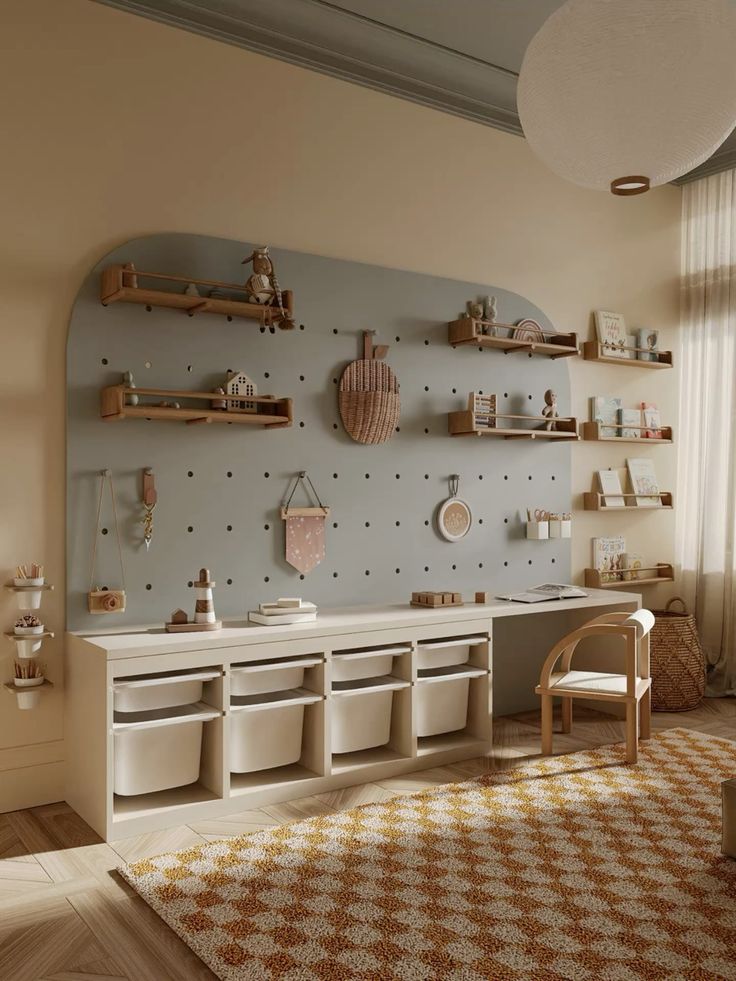
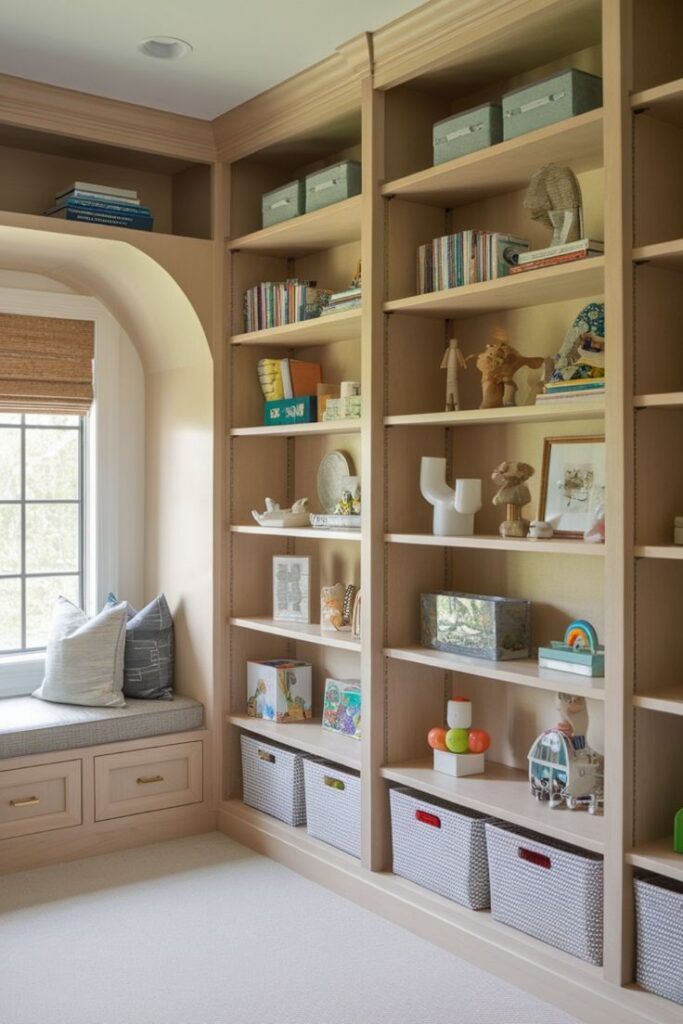
Storage that fits the adventure theme helps keep the room organized without losing style. Look for chests shaped like treasure boxes or shelves that look like trees or mountains. These pieces store toys, books, and clothes while matching the room’s concept.
Using furniture with hidden compartments or pull-out bins can save space. Labels or themed tags on boxes help children know where to put things. This kind of storage teaches kids to keep their room neat while staying part of the adventure.
Desks and Exploration Stations
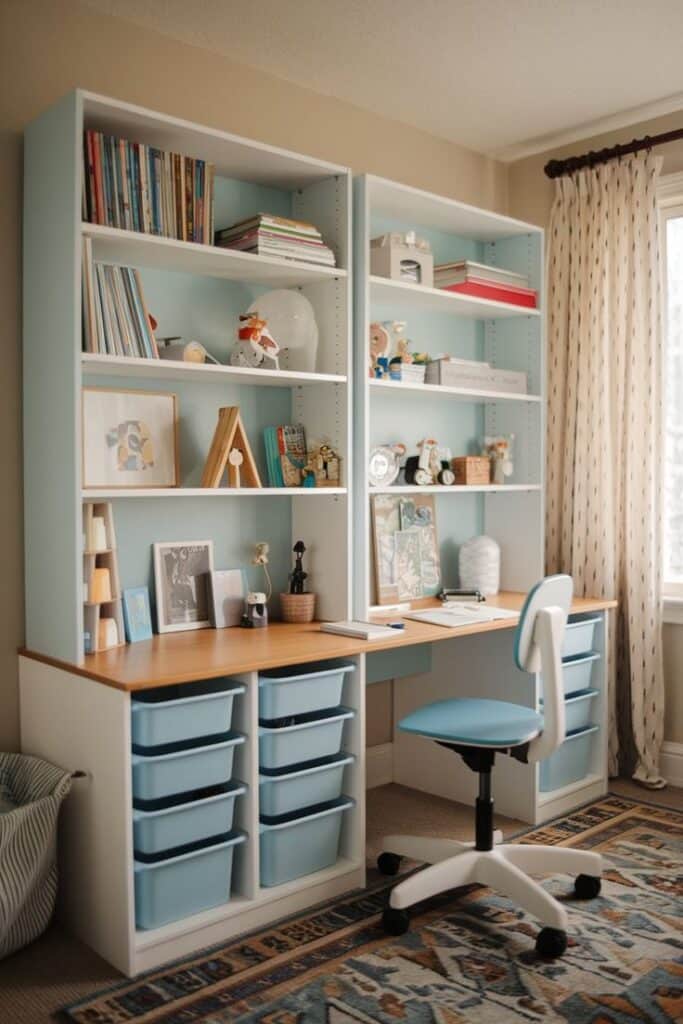
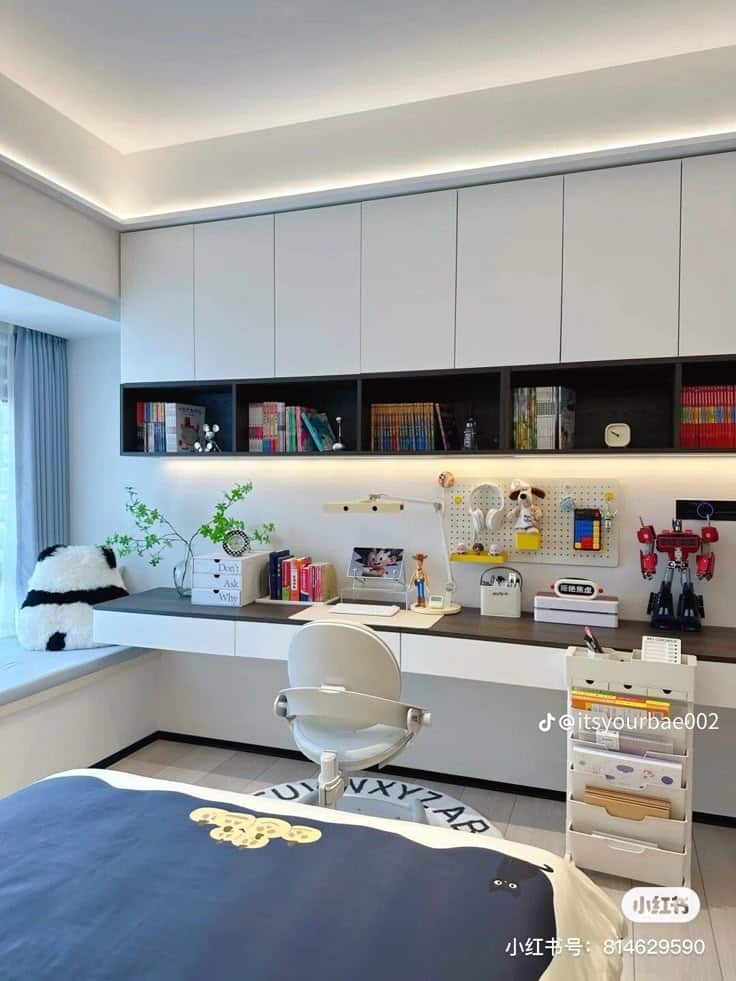
Adventure-inspired desks often have maps, compasses, or spotlights built in. These desks give kids a special place for drawing, reading, or studying. Some come with adjustable surfaces to fit different needs.
Exploration stations might include drawers for art supplies or hooks for gadgets. They encourage curiosity and make learning feel like a journey. The design combines function with imaginative details that match the room’s theme.
Interactive Play and Learning Zones
The design includes spaces where kids can climb, read, and explore through hands-on activities. These zones boost physical activity, imagination, and learning in a fun way.
Climbing and Activity Features
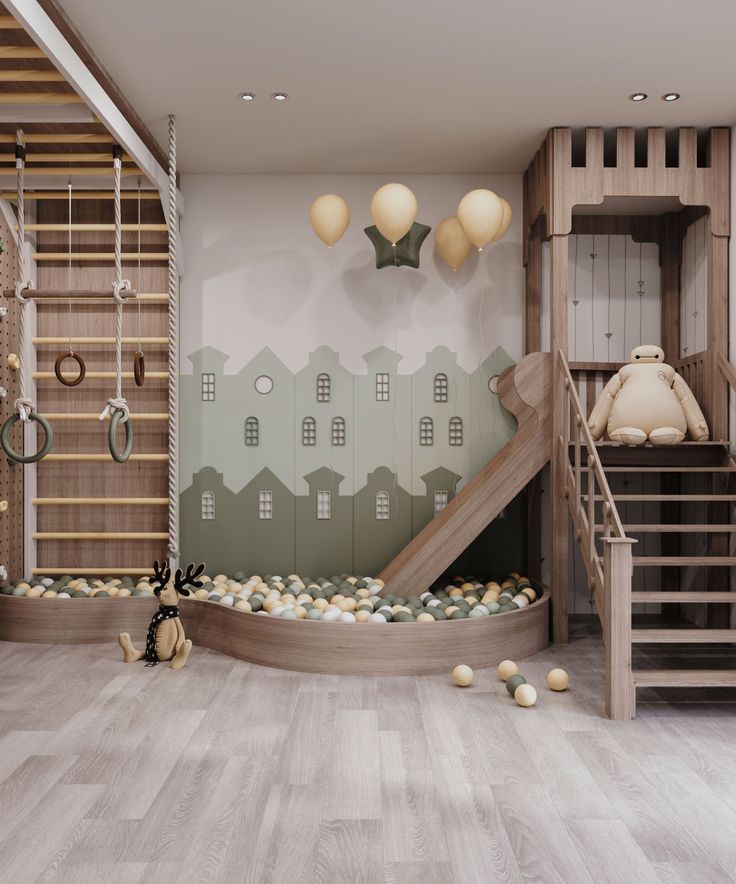
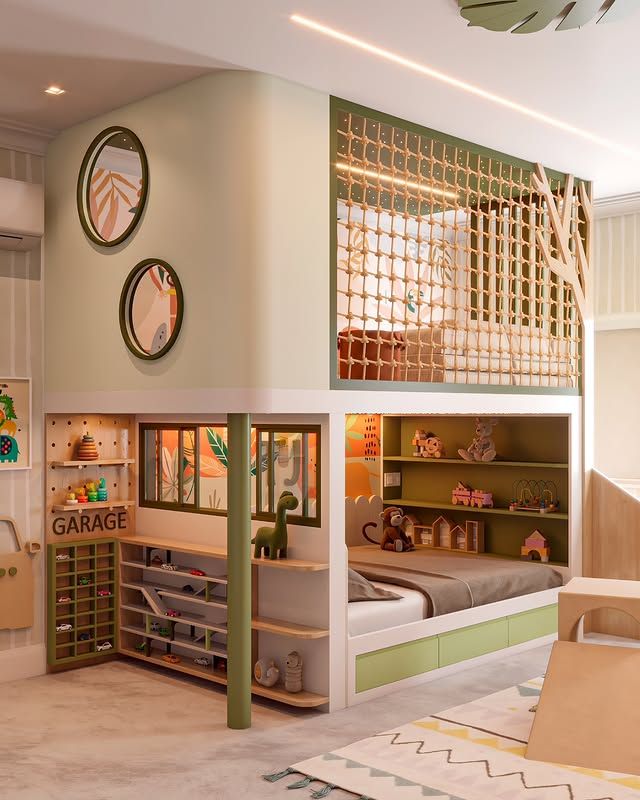
Climbing walls or ropes add physical challenges that help a boy develop strength and coordination. These features can be built safely with soft mats below to reduce injury risk.
Kit-like climbing panels with easy-grip holds encourage problem-solving as he plans his moves. A small rope ladder or hanging bars also promote active play indoors.
Bright colors or nature-themed prints on the climbing area make it inviting. This setup balances exercise with fun, fitting well into an explorer-themed room.
Reading Nook with Explorer Theme
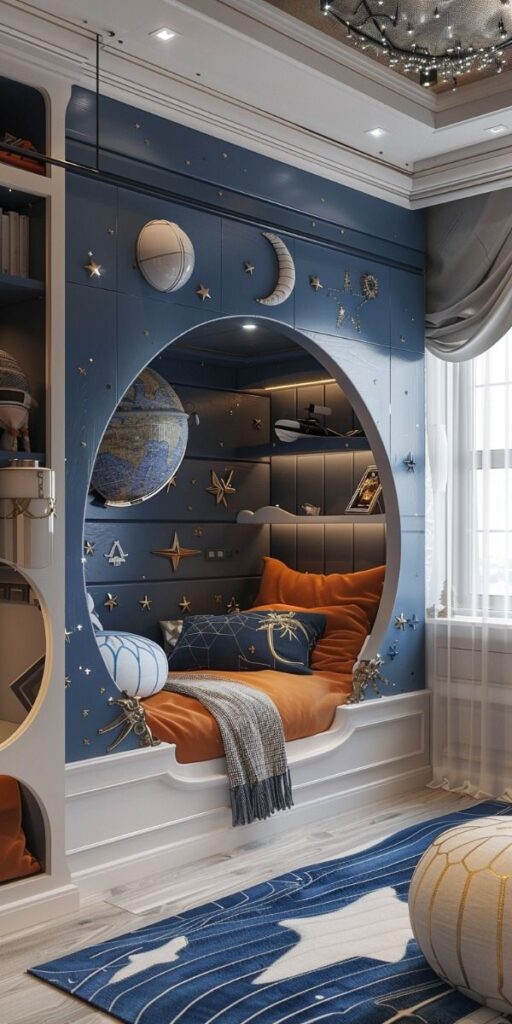
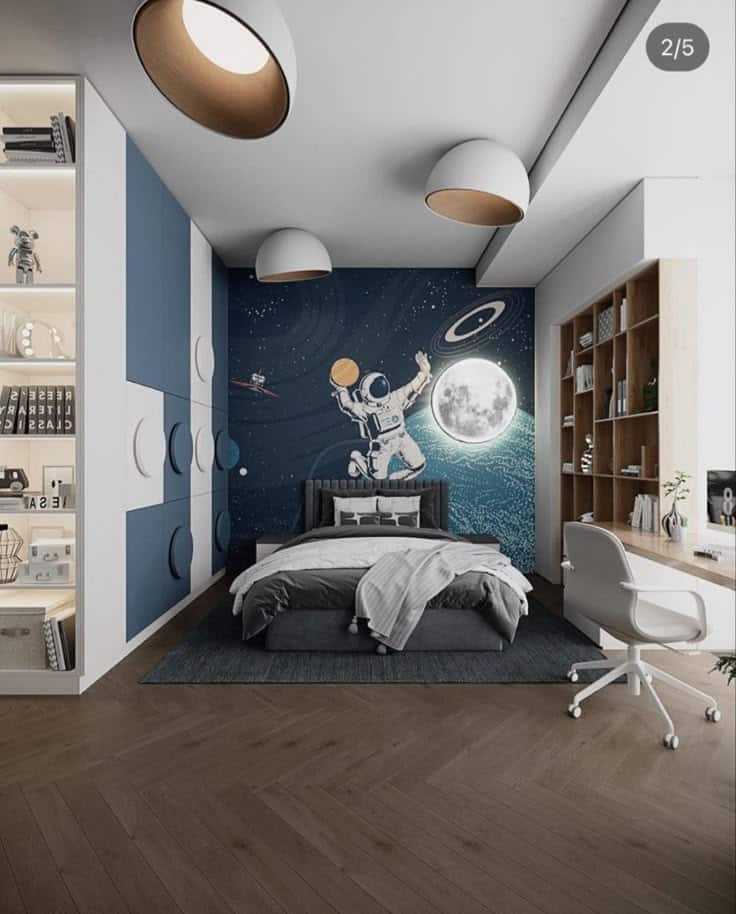
A cozy corner with a tent or teepee creates a special reading spot. The space should have shelves stocked with adventure books and maps to fuel curiosity.
Good lighting, like a soft lamp or string lights, helps him focus on stories. Cushions or bean bags add comfort and invite longer reading times.
Decoration with animal posters or nature decals supports the explorer motif. This calm zone encourages quiet learning and imagination.
DIY Exploration Play Areas
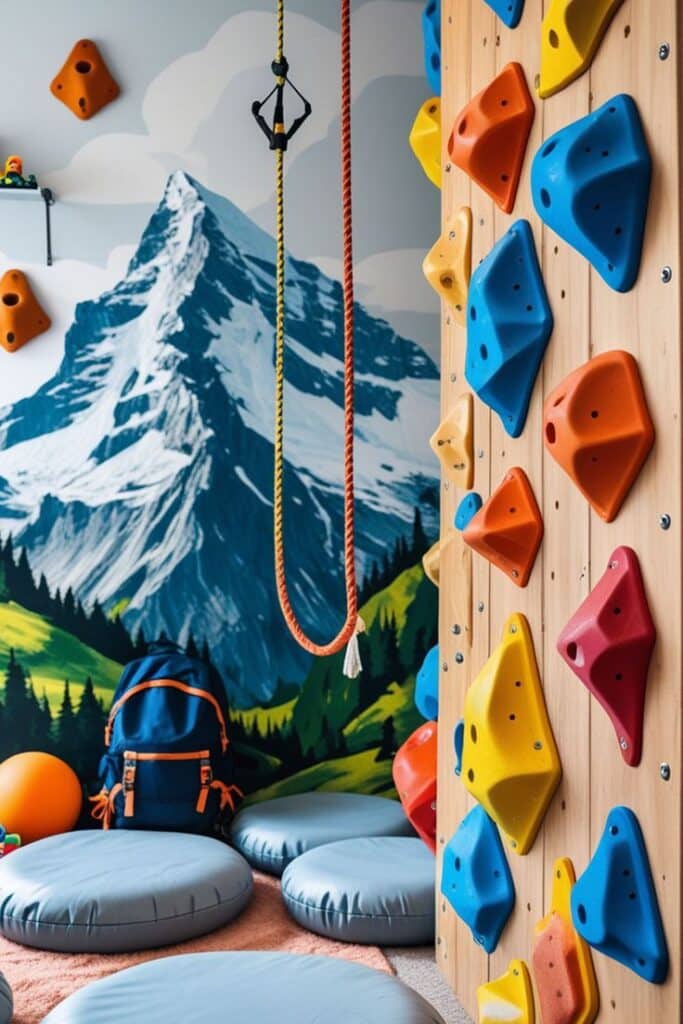
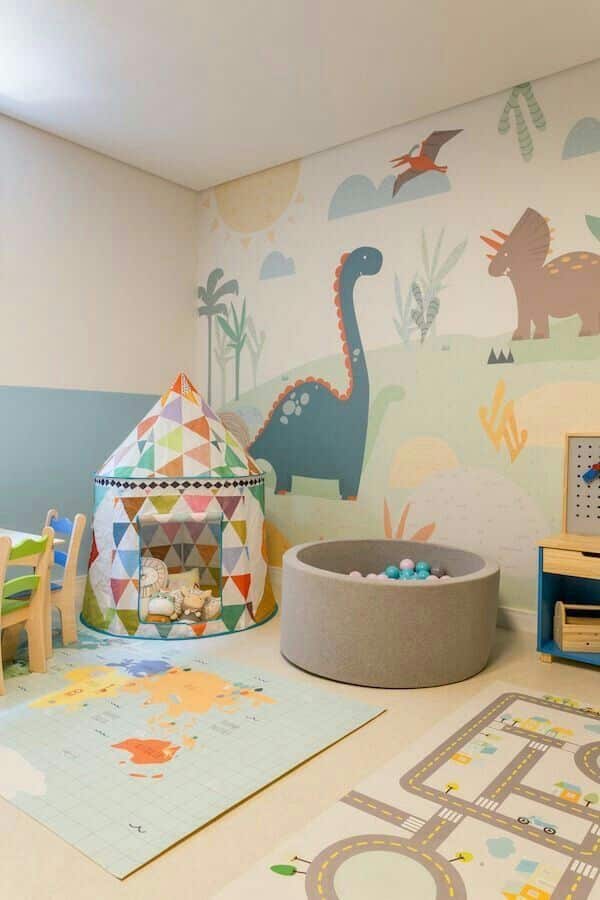
Hands-on zones with tools like magnifying glasses, bug catchers, and maps engage a boy in real-world discovery. Tables or bins with rocks, leaves, or shells offer sensory experiences.
Labels and simple instructions guide him in experimenting and observing. This area promotes independent learning and creativity.
Storage solutions nearby keep supplies organized and accessible. The DIY zone blends play and education naturally, making exploration part of daily fun.
Lighting Solutions for Explorer Ambiance
Lighting in an explorer-themed room should create a sense of adventure and comfort. Using creative fixtures and soft glow effects helps set the right mood while providing enough light for activities.
Themed Light Fixtures and Lamps
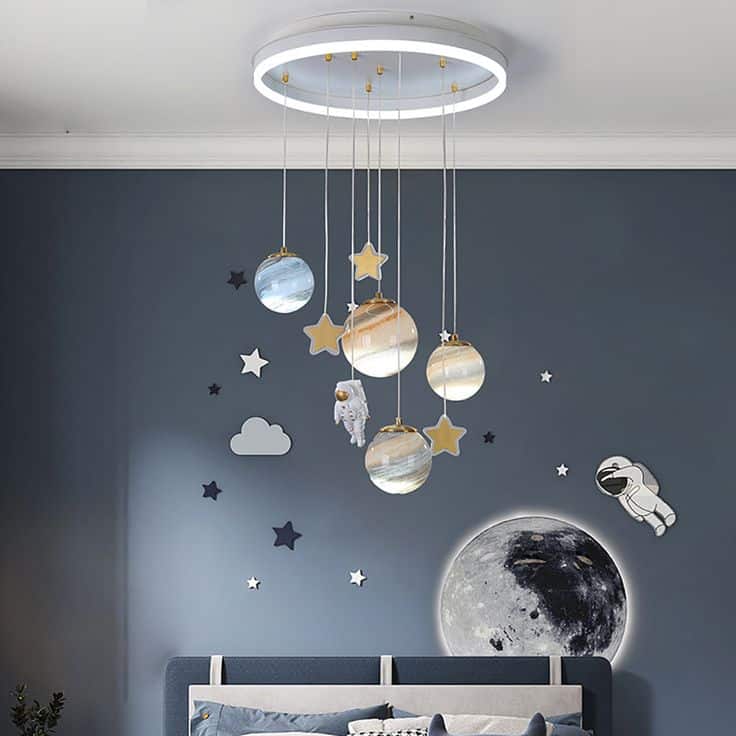
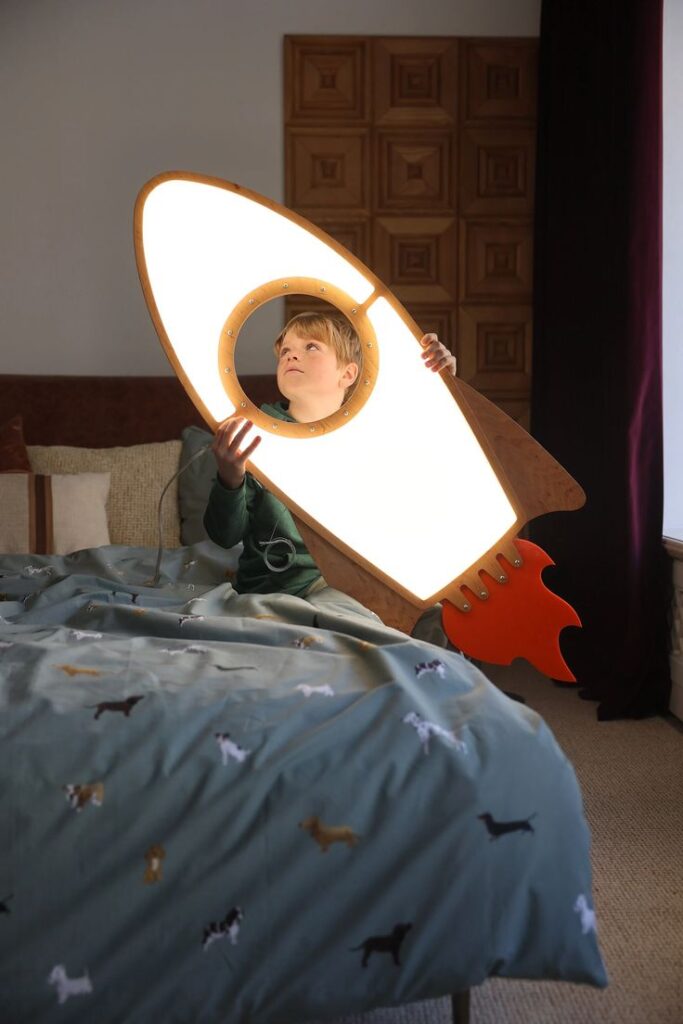
Themed fixtures often feature shapes like globes, compasses, or animals related to nature. These lights add a decorative touch and keep the explorer vibe strong. A table lamp shaped like a vintage lantern or a ceiling light that looks like a hot air balloon fits well. Materials such as wood or metal enhance the rugged feel.
Adjustable lamps help with reading or crafts. Dimmable bulbs allow control over brightness, making the room suitable for both playtime and rest. Using bulbs with warm white light can mimic sunset tones, creating a cozy atmosphere tied to the outdoors.
Night Lights and Glow Effects
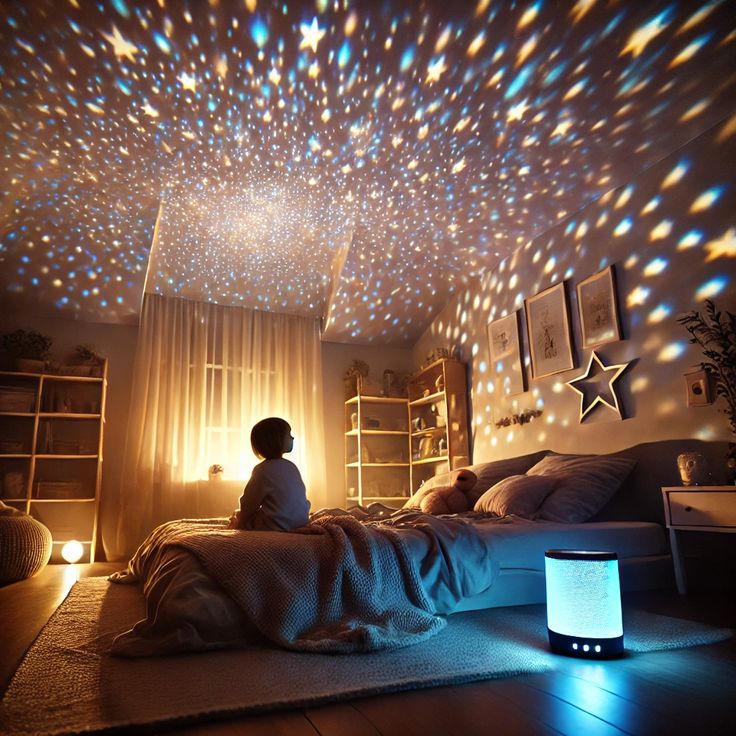
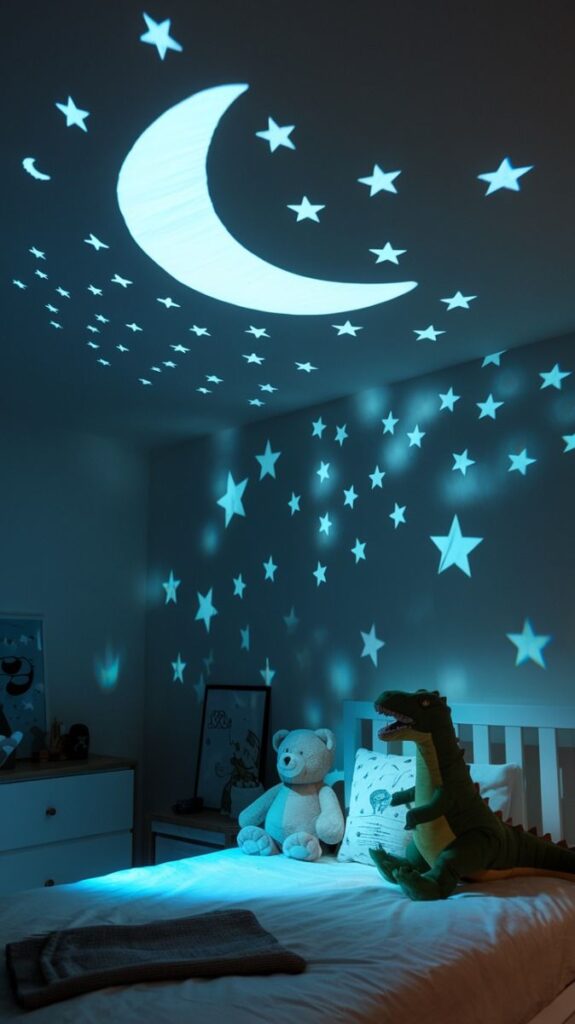
Night lights shaped like stars, animals, or maps provide gentle illumination that reassures kids in the dark. They are useful for bedtime and give the room a magical touch without being too bright.
Glow-in-the-dark stickers or projector lamps that cast constellations on the ceiling encourage imagination. These effects help maintain the explorer theme while offering comfort during the night. Battery-operated or plug-in options make placement flexible, adapting to the room layout easily.
Adventure Style Accessories and Accents
The right accessories add character and function to an explorer-themed room. These items should spark imagination while being practical for everyday use. Textiles, decorations, and storage choices help pull the design together.
Decorative Pillows and Bedding
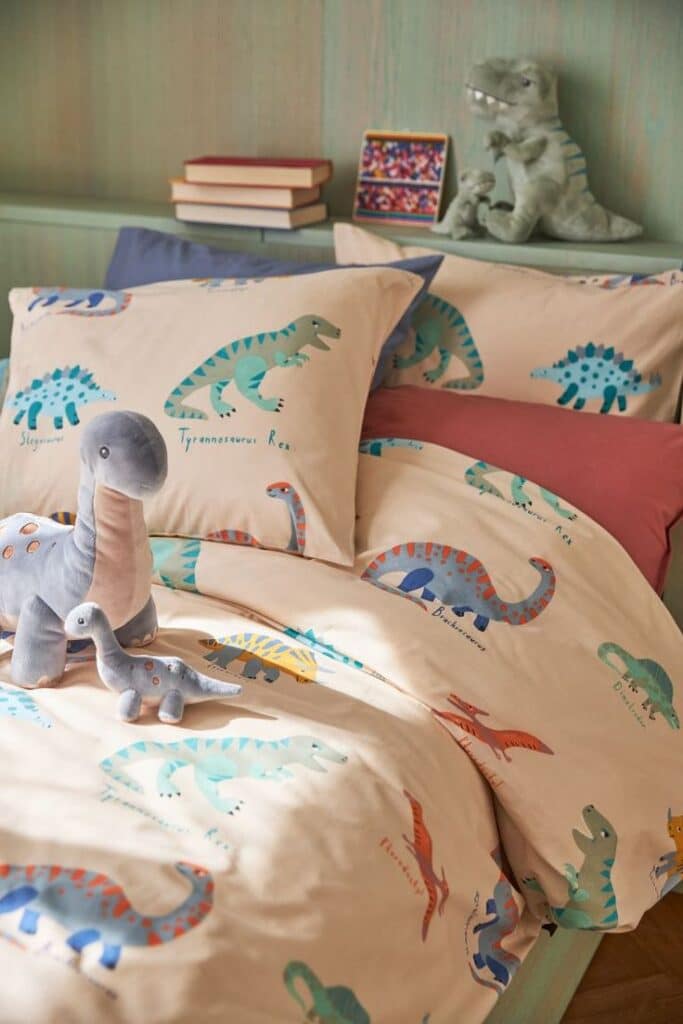
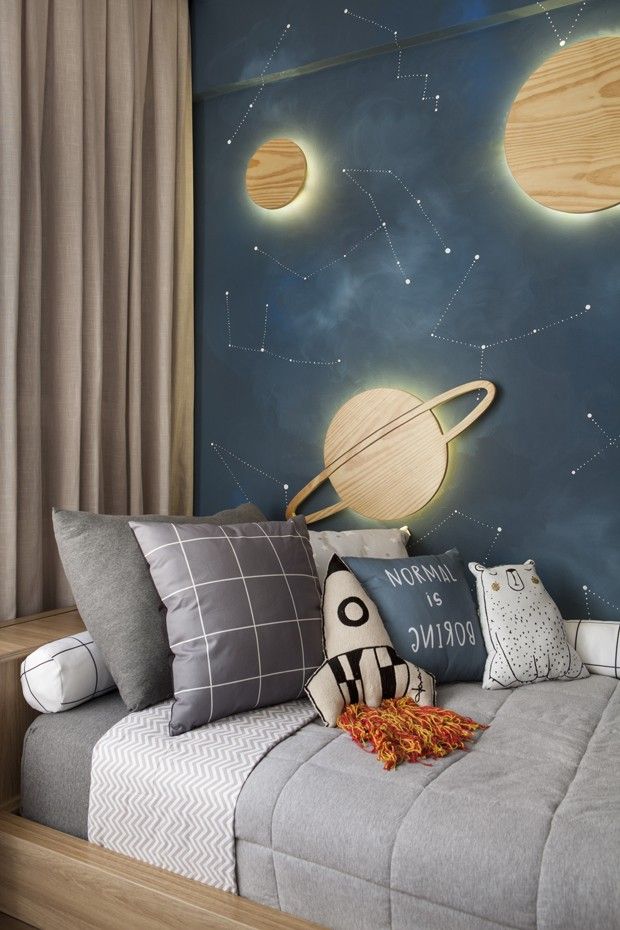
Pillows and bedding with maps, compasses, and animal prints highlight the adventure theme. Look for bedding sets that use natural colors like green, brown, and beige. These tones create a calm but rugged look.
Pillows shaped like tents, animals, or mountains add playful touches. Using a mix of textures—such as soft cotton and rough burlap—adds depth and comfort. Durable fabrics are important because they hold up to active play.
Adventure Garlands and Buntings
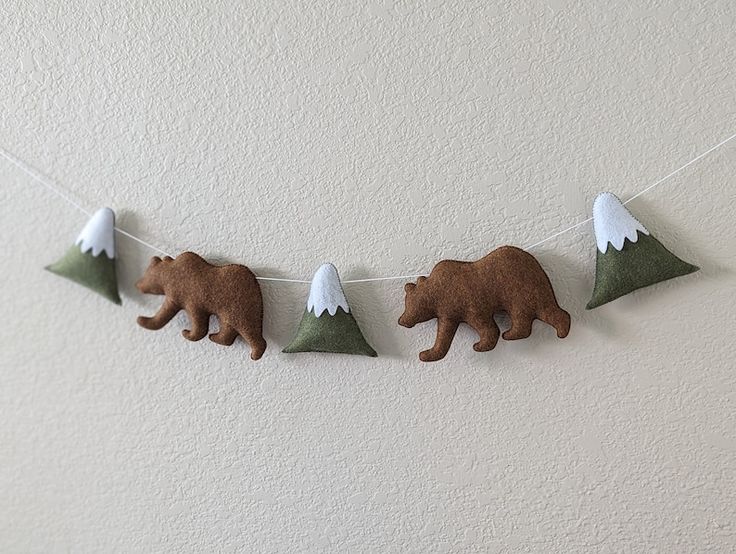
Garlands with flags, cloth triangles, or paper shapes bring color and fun to the walls or ceiling. Choose patterns like arrows, stars, or forest animals to match the explorer theme. Hanging them near windows or across the bed frames makes the room feel lively.
These decorations are easy to swap out for new themes or seasons. Lightweight materials keep them safe and simple to install. Using string lights mixed in can add a warm and cozy glow.
Explorer Storage Baskets and Bins
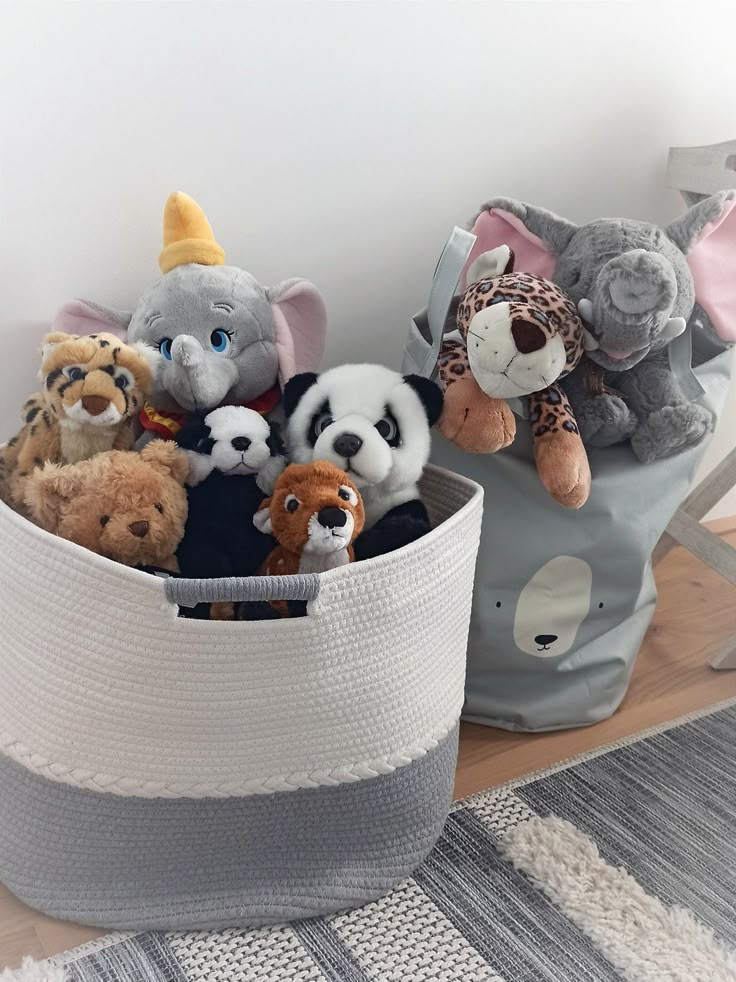
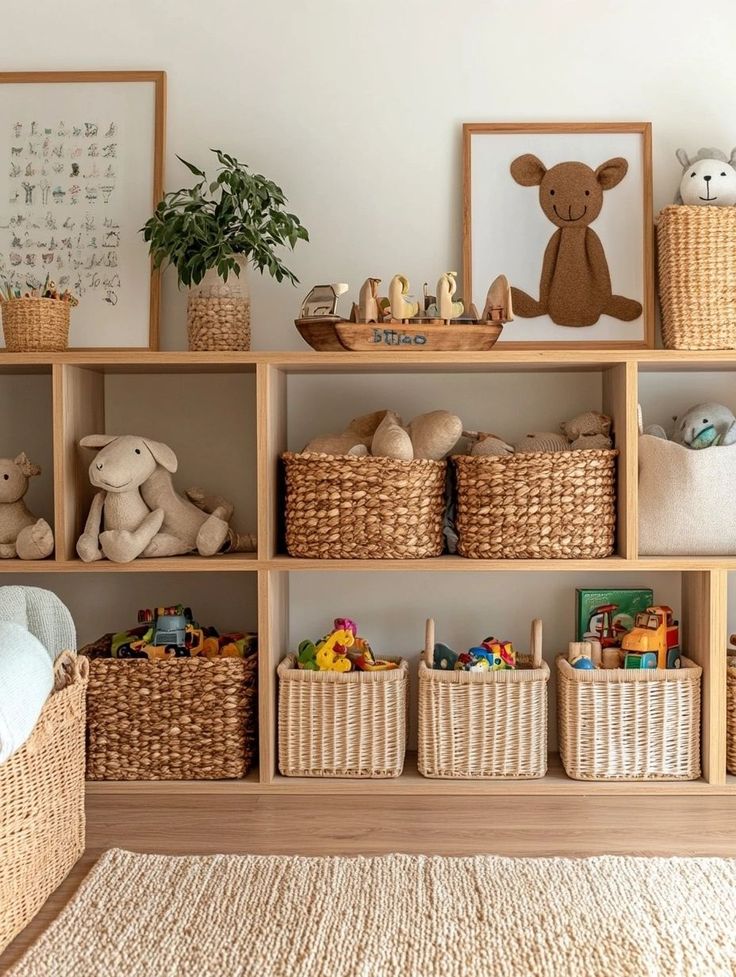
Storage baskets resembling crates, barrels, or leather trunks fit well in an adventure room. They keep toys and gear organized while adding to the thematic look. Materials like woven wicker or canvas give a natural, outdoorsy feel.
Bins with labels shaped like worn tags or old maps help kids learn where to put items. They should be sturdy and easy for children to use on their own. Stackable options save space and keep the room tidy.
Personalization and Finishing Touches
Adding personal details makes the room feel special and unique. Small touches like names and favorite items create a sense of ownership.
Custom Name Signs
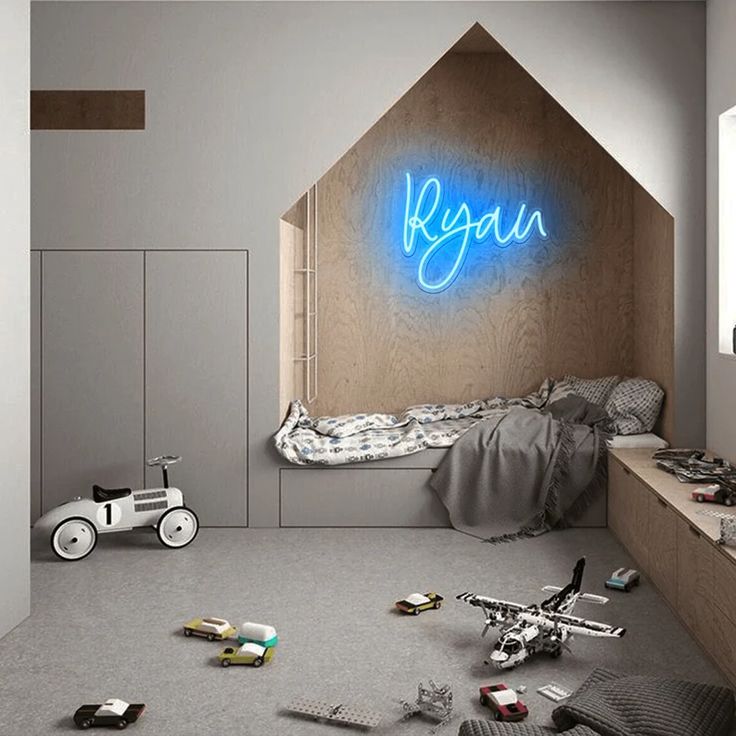
A custom name sign is a great way to give the room character. These signs can be made from wood, metal, or even LED lights depending on the style.
They can be hung on the wall above the bed or door for clear visibility. Using bold colors or a favorite font helps the sign stand out.
This detail not only marks the room as his but also adds a decorative element that fits the adventure theme well.
Showcasing Collections and Trophies
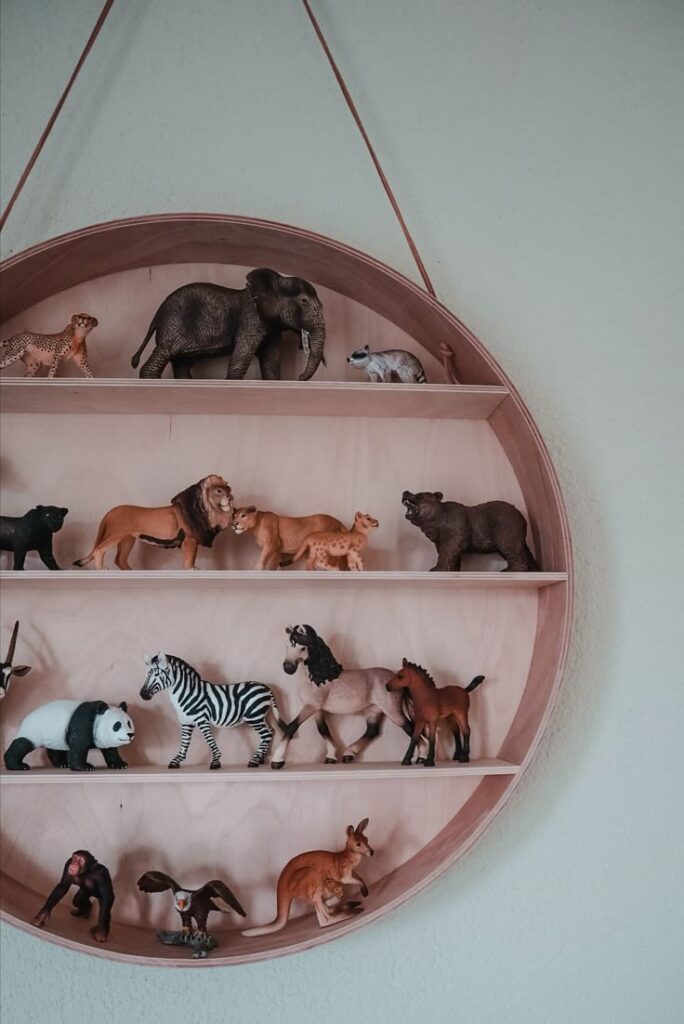
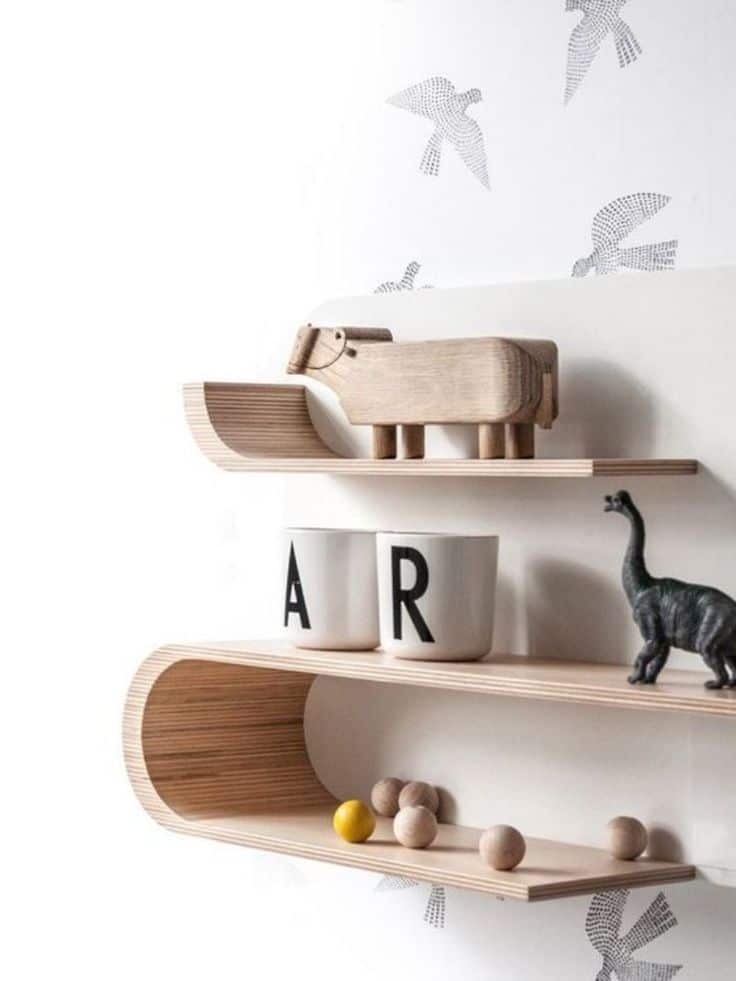
Displaying collections and trophies shows off achievements and interests. Shelves or shadow boxes work well for keeping items organized and visible.
Arrange items by size or theme to create a neat, eye-catching display. Using small spotlights or colored backdrops can highlight the items further.
This encourages pride and motivates him to add more to his collection over time, making the room feel active and personalized.
Safety and Practical Considerations
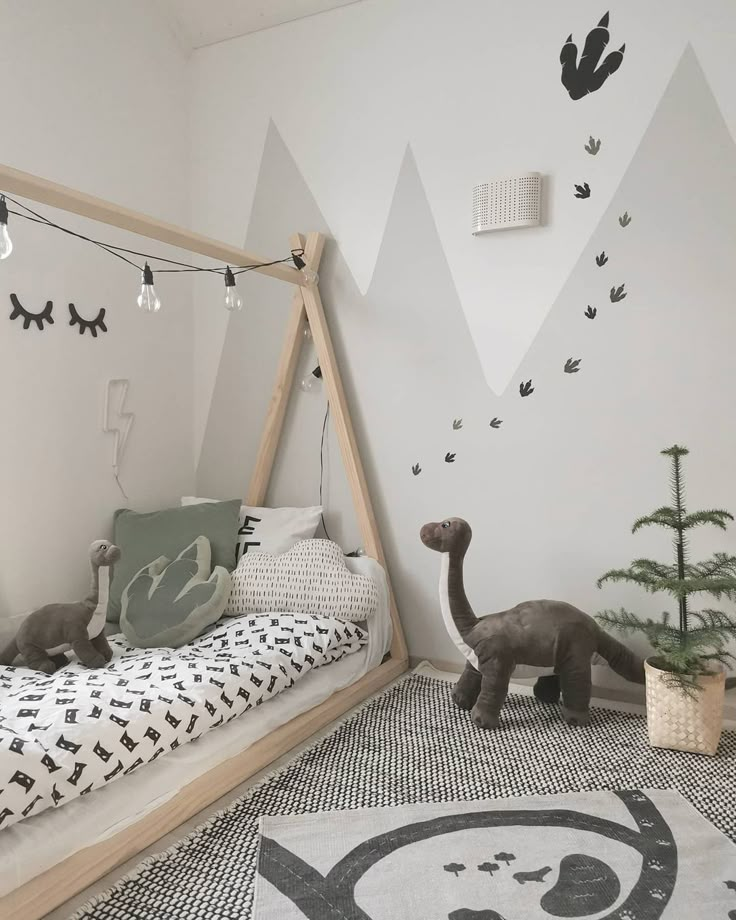
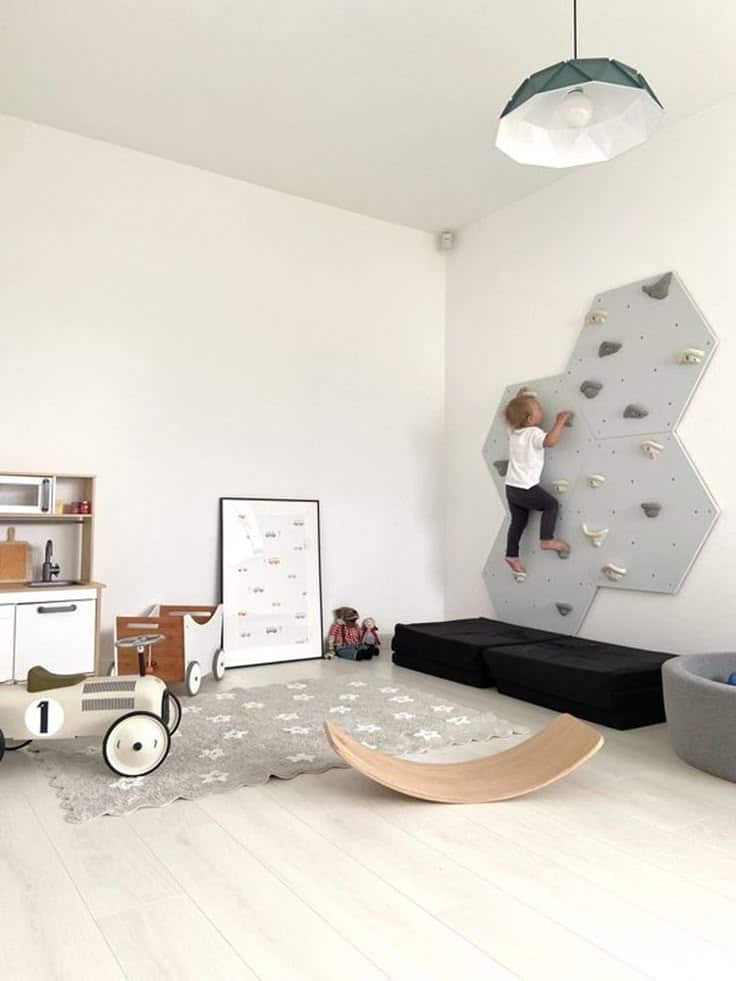
When designing a Boy’s Adventure Explorer Kids Room, safety is a top priority. All furniture should have rounded edges to reduce the risk of injury. Heavy items must be securely anchored to walls to prevent tipping.
Use non-toxic, child-safe paints and finishes. These materials protect the child from harmful chemicals and create a healthier environment.
Storage should be both practical and safe. Open shelves allow easy access but should be placed at a height the child can reach without climbing.
Electrical outlets need to be covered with safety plugs. This simple step prevents accidental shocks.
Soft rugs or foam mats can cushion falls, especially near play areas. These materials reduce the chance of serious injury during energetic activities.
Lighting should be bright enough for reading but soft enough for relaxing. Adjustable lamps and dimmers are good options.
Ventilation and temperature control matter for comfort and health. Proper airflow reduces stuffiness and helps maintain a safe room climate.
A checklist for key safety points:
| Safety Feature | Purpose |
|---|---|
| Rounded furniture edges | Prevents cuts and bruises |
| Secured heavy furniture | Avoids tipping accidents |
| Non-toxic paints | Protects from harmful fumes |
| Outlet covers | Stops electrical shocks |
| Soft rugs or mats | Cushions falls |
| Adjustable lighting | Supports different activities |
| Good ventilation | Ensures fresh, safe air |
- 2.3Kshares
- Facebook0
- Pinterest2.3K
- Twitter0
- Reddit0

